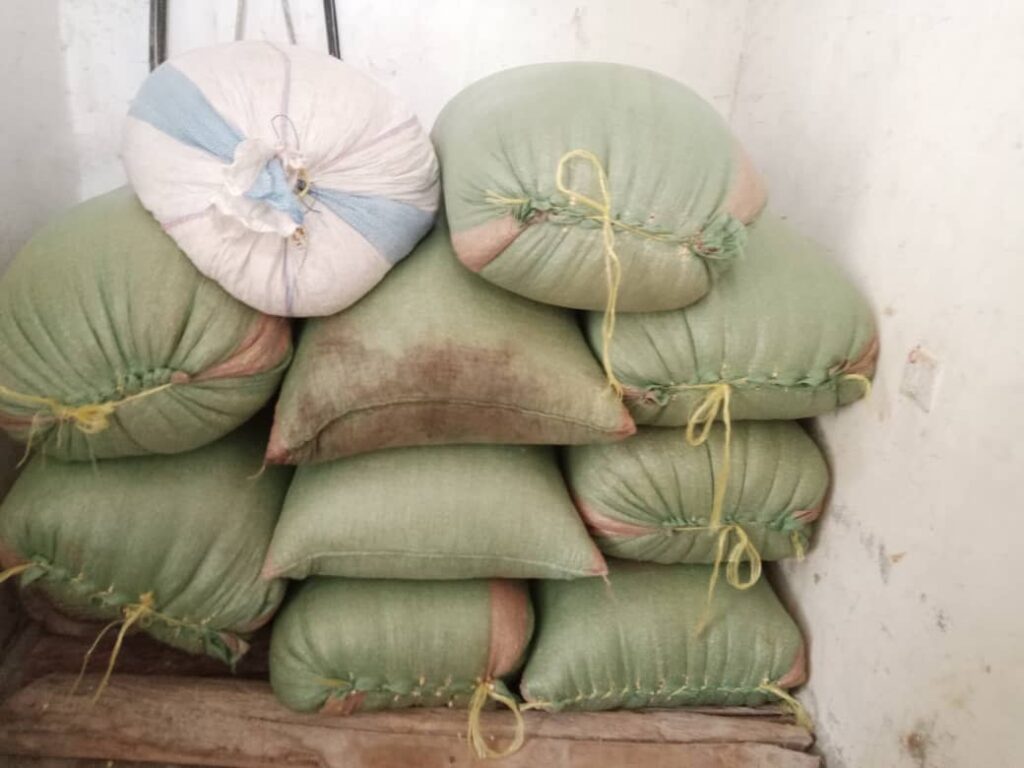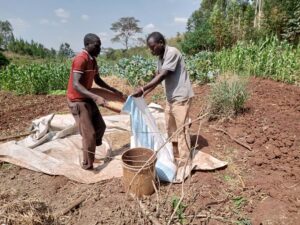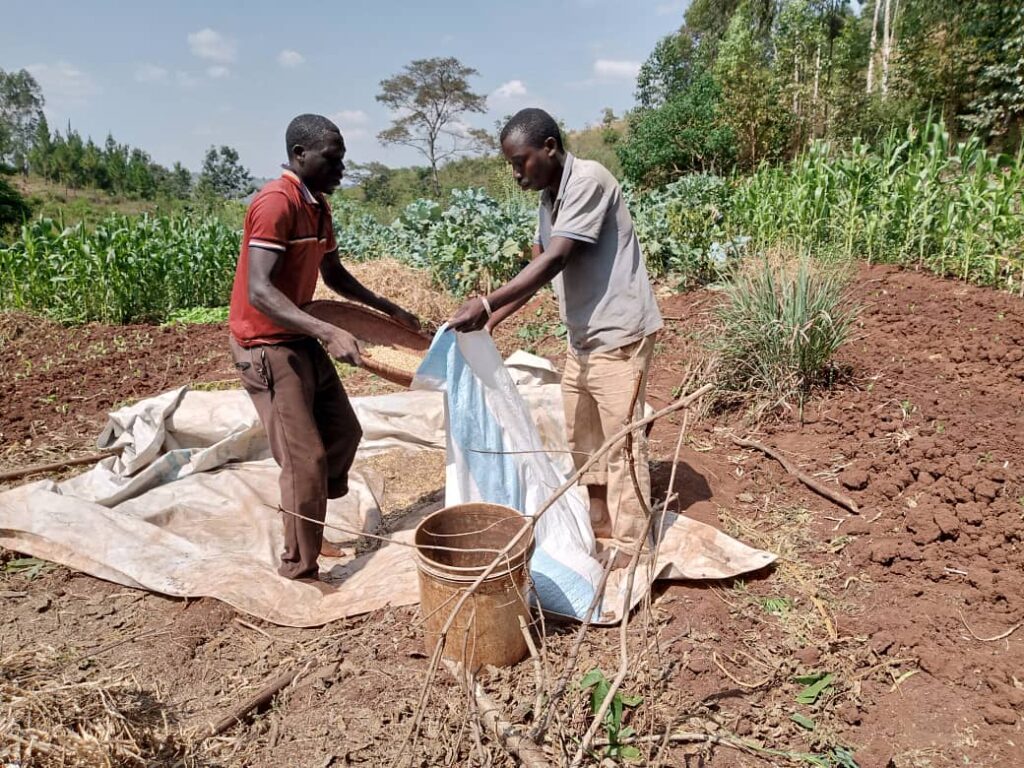Ngara, TZ – Trial using no industrial fertilizer – Jul 2023
SODAT in collaboration with three Grow-own-Breakfast (GOB) program schools harvested 7.5 acres of beans for 2,278 students’ daily breakfast serving. The seeds had been purchased early, and no chemical fertilizer was used to save input costs.
Despite the weather being consistent this season, the schools harvested 1,636 Kgs less than hoped for. The planted 7.5 acres were expected to produce 4,995 Kgs, but the bean fields were planted without industrial fertilizer. This was because chemical fertilizer applied on top of the soil does not feed the soil, so over time the soil loses its natural nutrients and becomes unproductive without applying some form of fertilizer.
This fertilizer side effects trial was conducted in three different school fields in Ngara region, and confirmed that soil loses natural fertility when industrial fertilizer is relied upon. Fortunately, beans are a legume that fixes nitrogen in the soil assisting it to regain fertility.

Among the three schools, Kabalenzi school harvested close to target because beans were planted in a former banana field where manure was being used for growing bananas. This gives a lesson to the schools and parents how industrial fertilizer reduces the soil fertility and increases costs causing farmers’ income to go down. SODAT has planned to assist the schools to purchase manure and use it efficiently for two years in order to rebuild the soil’s natural fertility and strengthen the sustainability of the schools’ GOB program.
The schools and parents’ cooperation is growing each year toward sustainability. Parents agreed to contribute 772 Kgs to close the feeding gap until the next harvests season in June 2024, and 160 Kgs has been contributed so far. Mukibogoye and Mukirehe school parents are contributing 2 Kgs per student, and Kabalenzi parents 1 Kg per student to maintain their bean emergency stock.


